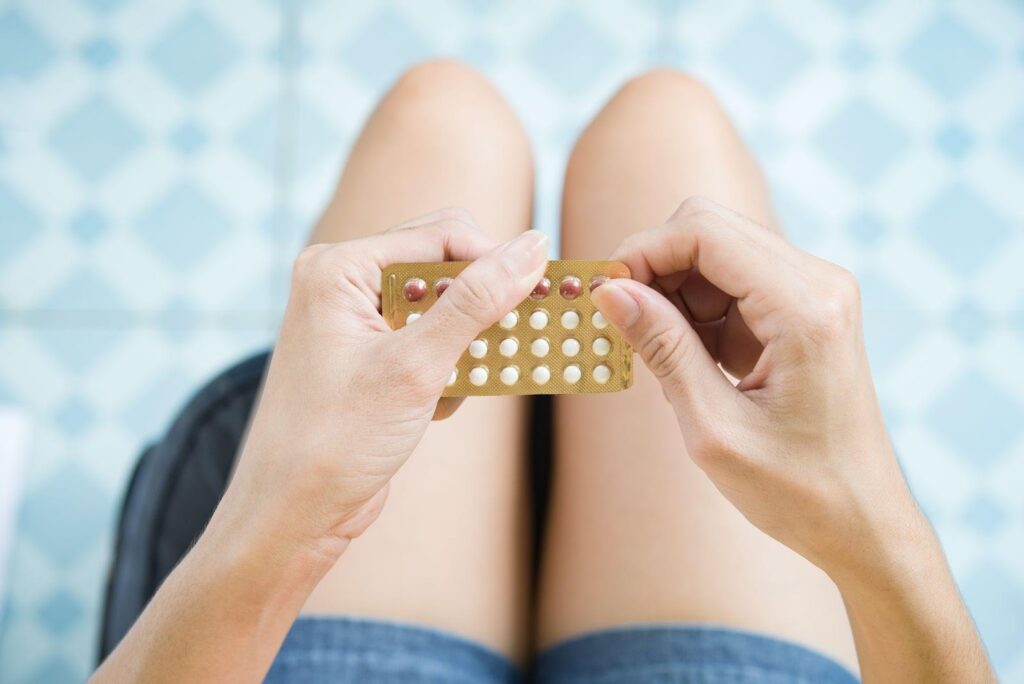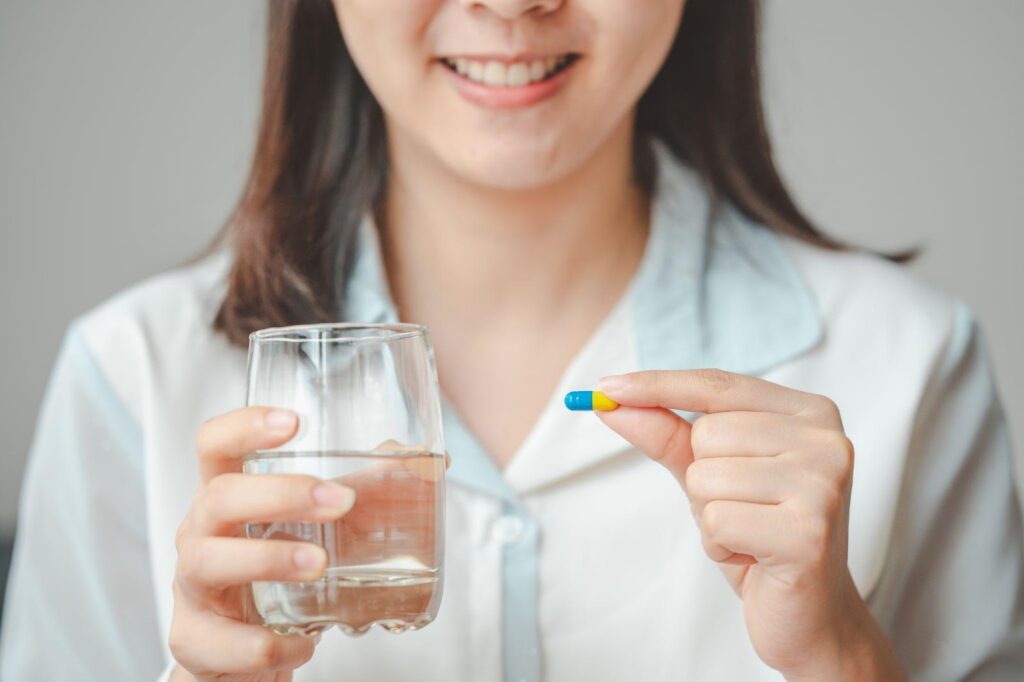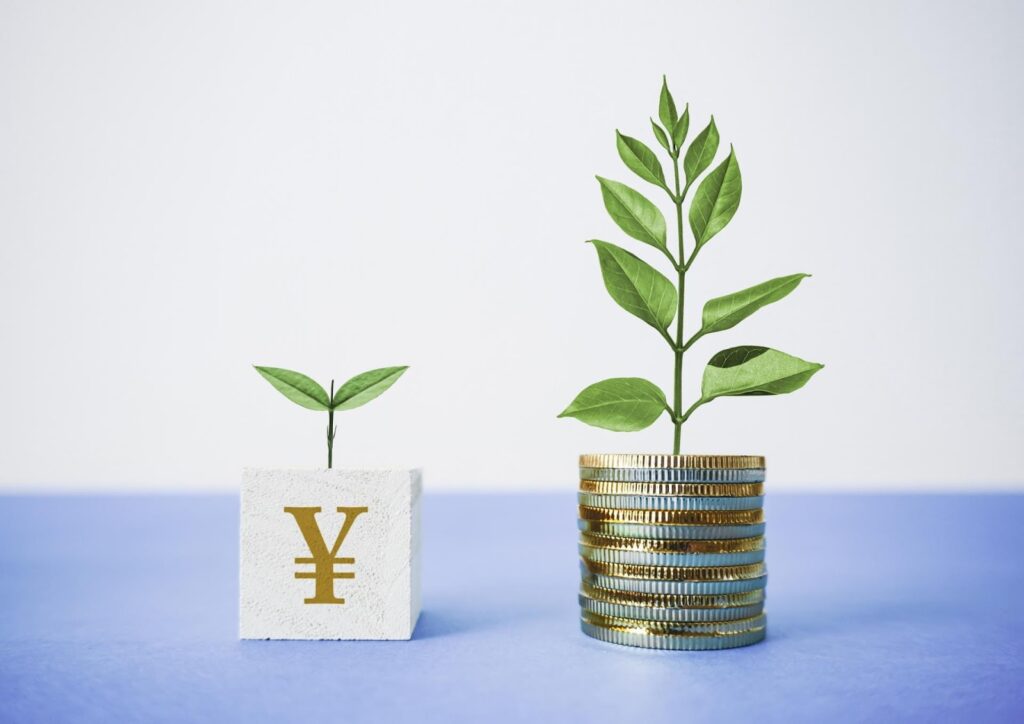Although birth-control pill (Low-dose pill in Japanese) is known for its high contraceptive effect, it is also said to be effective for women’s problems related to menstruation such as from menstrual pain, premenstrual syndrome (PMS), rough skin, and anemia.
This time, we would like to introduce that low-dose pills.
\\\ What is a low-dose pill? ///

A low-dose pill is a drug that contains two types of female hormones, “Estrogen” and “Progesterone.”
In most cases, there are 28 tablets per sheet, and one tablet is taken daily.
Of the 28 tablets, 21 contain ingredients, while the remaining 7 are placebo tablet.
The period of taking this placebo tablet is practically a short term of “Drug holiday”, and is taken to make a habit to take the medicine, and in order not to lose track of when to start the next sheet.
(There is also a 21-tablet type sheet that does not include the placebo tablets for the last 7 days.)
During this “Drug holiday”, you will have your period.
In this way, taking a low-dose pill allows you to control your menstrual cycle, so you don’t have to feel uncomfortable when your period may come, or have to carry around your menstrual supplies just in case.
\\\ Types of Low-Dose Pills ///
Low-dose pills are categorized into types such as “OC” and “LEP“, “Monophasic” and “Triphasic“.
① OC and LEP
・OC (oral contraceptive): low-dose pills used for contraceptive purposes
・LEP: Low-dose pills used to treat “dysmenorrhea” and “endometriosis”
② Monophasic and Triphasic
・Monophasic: The amount of hormones contained in the drug is the same, and it is said to be a type that is easy to use for improving PMS. Maveron are applicable on this type.
・Triphasic: The amount of hormones contained in the drug is divided into three stages, which is close to the natural change in hormone balance, therefore it is said that side effects are unlikely to occur. Trickular are applicable on this type.
The compatibility of medicines varies from person to person. Please consult to your doctor to find the right medicine for you.
\\\ Benefits of Taking Low-Dose Pills ///

There are three main benefits of taking low-dose pills:
① Suppress Ovulation
Low-dose pills has effects on surpressing ovulation. As a result, 99.7% of contraceptive effect can be obtained if taken properly. In addition, by suppressing ovulation, damage to the ovaries associated with ovulation can be reduced, which has the effect of reducing the possibility of developing ovarian cancer in the future.
② Suppresses The Growth of Endometrium
By suppressing the growth of the endometrium, it is also effective in improving and treating menstrual pain and dysmenorrhea. In addition, by reducing the amount of bleeding (menstrual blood volume) during menstruation, it can be expected to improve anemia. In addition, it has been reported to reduce the possibility of developing endometrial cancer.
③ Keep the Balance of Female Hormones
Low-dose pills have the effect of adjusting the hormone balance. Therefore, it will become an effective treatment for some symptoms, such as skin troubles, acne, depression, painful symptoms that occur before and during menstruation, and regulating menstrual cycle.
Although a low-dose pill has a strong image as a contraception, actually, it is also used to improve menstrual irregularities, menstrual pain, PMS and other menstrual discomfort, improve acne, and treat dysmenorrhea and endometriosis.
\\\ Symptoms or Illnesses Improved with Low-Dose Pills ///
It is said that taking low-dose pills may improve the following symptoms:
- Dysmenorrhea
- Endometriosis
- PMS (Premenstrual Syndrome)
- Irregular menstruation, etc.
Other low-dose pills have also shown some results in reducing the risk of ovarian, endometrial, and colorectal cancer.
\\\ Main Side-Effects of Low-Dose Pills ///
① Side effects without major problems
Nausea, dullness, and abnormal bleeding are the most common symptoms of taking low-dose pills for the first time.It is said that less than 30% of people taking low-dose pills experience these symptoms, and it usually subsides in about 1 month or, at the longest, about 2 months.If the symptoms persist for more than 2 months, please consult your hospital or clinic once.
② Side effects that need to be stopped immediately
It was said that taking low-dose pills may develop blood clot, which increases the risk of developing a disease that clogs blood vessels.
Specifically, the rate of onset in people who do not take pills is 1 to 5 per 10,000 people per year, while those who take pills are about 3 to 9 per 10,000 people per year.
Depending on where the blood clot forms, the type of disease will change, such as cerebral infarction, myocardial infarction, or pulmonary embolism.
They usually have various symptoms, such as:
- Calf pain, swelling, and numbness
- Strong chest pain
- Strong headache and nausea
- The field of view becomes narrower
- Difficult to talk
- Difficulties on moving limbs
And so on.
If you experience these symptoms, stop taking the pill immediately and go to an emergency hospital. When visiting the hospital, make sure to bring the low-dose pills you are taking with you.
If you are uncertain about whether to consult directly to the hospital or not, we recommend you to make a reservation for an “Online Medical Consultation“.
\\\ Costs of Low-Dose Pills and How to Purchase ///

Low-dose pills in Japan can not be bought at pharmacies and must be prescribed by a doctor. Therefore, you need to go to a gynecological clinic or hospital in order to get a prescription.
If you need the prescription of low-dose pill on an online visit to OHDr., here’s an estimate of the cost:
-
- Initial consultation fee: 1,000 yen (re-examination: 590 yen)
- Low-dose pills price: about 3000 yen per sheet
At OHDr., you can consult with a gynecologist online and pick up your medicine at a nearby pharmacy.
If you choose home delivery for your medicine, you will be able to get the access of consultation and receive your pills without leaving your home.
It is also highly recommended for those who are busy and do not have time to go to the hospital, or who are somewhat reluctant to go to the gynecology department but would like to consult with doctor.
